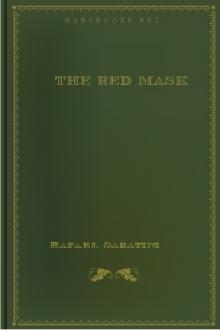Genre Fiction. Page - 209

did not stop until she stood by her side, and looked up in her face with her blue eyes and the two melted stars in them.
"Why, what have you been doing with your eyes, child?" asked the old lady.
"Crying," answered the princess.
"Why, child?"
"Because I couldn't find my way down again."
"But you could find your way up."
"Not at first--not for a long time."
"But your face is streaked like the back of a zebra. Hadn't you a handkerchief to wipe your eyes with?"
"No."
"Then why didn't you come to me to wipe them for you?"
"Please I didn't know you were here. I will next time."
"There's a good child!" said the old lady.
Then she stopped her wheel, and rose, and, going out of the room, returned with a little silver basin and a soft white towel, with which she washed and wiped the bright little face. And the princess thought her hands were so smooth and nice!
When she carried away the basin and towel, the little princess wond

e bedroom at the back of the cottage in Brougham Street, and it was of a complex nature. Three weeks ago he had innocently thought that you had only to order a dress-suit and there you were! He now knew that a dress-suit is merely the beginning of anxiety. Shirt! Collar! Tie! Studs! Cuff-links! Gloves! Handkerchief! (He was very glad to learn authoritatively from Shillitoe that handkerchiefs were no longer worn in the waistcoat opening, and that men who so wore them were barbarians and the truth was not in them. Thus, an everyday handkerchief would do.) Boots!... Boots were the rock on which he had struck. Shillitoe, in addition to being a tailor was a hosier, but by some flaw in the scheme of the universe hosiers do not sell boots. Except boots, Denry could get all he needed on credit; boots he could not get on credit, and he could not pay cash for them. Eventually he decided that his church boots must be dazzled up to the level of this great secular occasion. The pity was that he forgot--not that he was of

Death of Sir Gawaine -- Sir Thomas Malory
The Queen's Speech to her last Parliament -- Elizabeth, Queen of England
Death of Cleopatra -- Sir Thomas North
The Vanity of Greatness -- Sir Walter Ralegh
The Law of Nations -- Richard Hooker
Of Studies -- Francis Bacon
Meditation on Death -- William Drummond
Primitive Life -- Thomas Hobbes
Character of a Plodding Student -- John Earle
Charity -- Sir Thomas Browne
The Danger of interfering with the Liberty of the Press -- John Milton
Death of Falkland -- Earl of Clarendon
The End of the Pilgrimage -- John Bunyan
Poetry and Music -- Sir William Temple
A Day in the Country -- Samuel Pepys
Captain Singleton in China -- Daniel Defoe
The Art of Conversation -- Jonathan Swift
The Royal Exchange -- Joseph Addison
Sir Roger de Coverley's Ancestors -- Richard Steele
Partridge at the Play -- Henry Fielding
A Journey in a Stage-coach -- Samuel Johnson
Uncle Toby and Corporal Trim -- Laurence Sterne
The Funeral of George II -- Horace Walpole
The Credulity of the English -- Oliver Goldsmith
Decay of the Principles of Liberty -- Edmund Burke
The Candidate for Parliament -- William Cowper
Youth -- Edward Gibbon
First Sight of Dr Johnson -- James Boswell
Arrival at Osbaldistone Hall -- Sir Walter Scott
A Visit to Coleridge -- Charles Lamb
Diogenes and Plato -- W S Landor
An Invitation -- Jane Austen
Coleridge as Preacher -- William Hazlitt
A Dream -- Thomas de Quincey
The Use of Poetry -- John Keats
The Flight to Varennes -- Thomas Carlyle
The Trial of the Seven Bishops -- Lord Macaulay
The University of Athens -- J H Newman
The House of the Seven Gables -- Nathaniel Hawthorne
Denis Duval's first journey to London -- W M Thackeray
Storm -- Charles Dickens
Jane Eyre and Mr Rochester -- Charlotte Brontë
A Hut in the Woods -- H D Thoreau
A Miser -- George Eliot
Ships -- John Ruskin
The Child in the House -- Walter Pater
Diving -- R L Stevenson

íta is a sensible fellow, you see. He knows whom to love. So don't you go and fret, my jewel. We'll not take him away, and we won't marry him. No, we'll let him stay on, if you'll only oblige us with a little money.
ANÍSYA. All I know is, that I could not live if Nikíta went away.
MATRYÓNA. Naturally, when one's young it's no easy matter! You, a wench in full bloom, to be living with the dregs of a man like that husband of yours.
ANÍSYA. Mother Matryóna, would you believe it? I'm that sick of him, that sick of this long-nosed cur of mine, I can hardly bear to look at him.
MATRYÓNA. Yes, I see, it's one of them cases. Just look here, [looks round and whispers] I've been to see that old man, you know--he's given me simples of two kinds. This, you see, is a sleeping draught. "Just give him one of these powders," he says, "and he'll sleep so sound you might jump on him!" And this here, "This is that kind of simple," he says, "that if you

en, the cabinets for many years of his lonely meditations. Every path about his home, every field and hedgerow had dear and friendly memories for him; and the odor of the meadowsweet was better than the incense steaming in the sunshine. He loitered, and hung over the stile till the far-off woods began to turn purple, till the white mists were wreathing in the valley.
Day after day, through all that August, morning and evening were wrapped in haze; day after day the earth shimmered in the heat, and the air was strange, unfamiliar. As he wandered in the lanes and sauntered by the cool sweet verge of the woods, he saw and felt that nothing was common or accustomed, for the sunlight transfigured the meadows and changed all the form of the earth. Under the violent Provençal sun, the elms and beeches looked exotic trees, and in the early morning, when the mists were thick, the hills had put on an unearthly shape.
The one adventure of the holidays was the visit to the Roman fort, to that fantast

such Romance, thrice refined of dross, as only he knows whohas wooed his Art with passion passing the love of woman.
Far away, above the acres of huddled roofs and chimney-pots, thestorm-mists thinned, lifting transiently; through them, gray, fairy-like,the towers of Westminster and the Houses of Parliament bulked monstrousand unreal, fading when again the fugitive dun vapors closed down upon thecity.
Nearer at hand the Shade of Care nudged Kirkwood's elbow, whisperingsubtly. Romance was indeed dead; the world was cold and cruel.
The gloom deepened.
In the cant of modern metaphysics, the moment was psychological.
There came a rapping at the door.
Kirkwood removed the pipe from between his teeth long enough to say "Comein!" pleasantly.
The knob was turned, the door opened. Kirkwood, turning on one heel, beheldhesitant upon the threshold a diminutive figure in the livery of the Plesspages.
"Mr. Kirkwood?"
Kirkwood nodded.
"Gentleman to see you, sir."
Kirkwood nodded ag

Iheard a cracked voice somewhere in the ring say, 'My name isHawkyard, Mr. Verity Hawkyard, of West Bromwich.' Then the ringsplit in one place; and a yellow-faced, peak-nosed gentleman, cladall in iron-gray to his gaiters, pressed forward with a policemanand another official of some sort. He came forward close to thevessel of smoking vinegar; from which he sprinkled himselfcarefully, and me copiously.
'He had a grandfather at Birmingham, this young boy, who is justdead too,' said Mr. Hawkyard.
I turned my eyes upon the speaker, and said in a ravening manner,'Where's his houses?'
'Hah! Horrible worldliness on the edge of the grave,' said Mr.Hawkyard, casting more of the vinegar over me, as if to get mydevil out of me. 'I have undertaken a slight - a very slight -trust in behalf of this boy; quite a voluntary trust: a matter ofmere honour, if not of mere sentiment: still I have taken it uponmyself, and it shall be (O, yes, it shall be!) discharged.'
The bystanders seemed to form an

else, why are you a priest, and why do you wear long hair and a cassock?
PRIEST. But we are not asked ...
ALEXÁNDRA IVÁNOVNA. Not asked, indeed! Why, I am asking you! He told me yesterday that the Gospels say, "Give to him that asketh of thee." But then in what sense is that meant?
PRIEST. In its plain sense, I suppose.
ALEXÁNDRA IVÁNOVNA. And I think not in the plain sense; we have always been taught that everybody's position is appointed by God.
PRIEST. Of course, but yet ...
ALEXÁNDRA IVÁNOVNA. Oh, yes. It's just as I was told; you take his side, and that is wrong! I say so straight out. If some young school teacher, or some young lad, lickspittles to him, it's bad enough--but you, in your position, should remember the responsibility that rests on you.
PRIEST. I try to ...
ALEXÁNDRA IVÁNOVNA. What sort of religion is it, when he does not go to church, and does not believe in the s

f. Richard had been sent on a mission of the greatest importance--one involving, Monsieur Lefevre had told her, the honor of both his country and himself. And she was to share it--to take part in its excitement, its dangers. The thought stirred all her love of the mysterious, the unusual. After all, since she had become the wife of a man whose profession in life was the detection of crime, should she not herself take an interest, an active part in his work, and thereby encourage and assist him? The thought made her impatient of all delay--she felt herself almost trying to urge the train to quicker motion--she was glad when at last they roared into the station at Brussels.
Grace had never before been in the Belgian capital, but she summoned a cab, and proceeded without difficulty to the Hotel Metropole. Here she was assigned to a small suite, and at once began to unpack the steamer trunk which was the only baggage she had brought with her. It was after four o'clock when she had completed this task, and

ld my arm to the Cardinal, but, disregarding it, he stepped heavily to the ground unaided, followed by André, on whom I kept a sharp eye, lest the knave should attempt to run.
I followed them at a distance of some eight yards, as I had been ordered, marvelling as I went what could be the Cardinal's plan of action.
We elbowed our way through a noisy dirty rabble, whom a dozen of the King's Guards could scarcely keep from obstructing the side entrance--used only by privileged individuals--in their curiosity to see the fanciful costumes of the maskers.
It was close upon midnight when we entered the ball-room. His Majesty, I learnt, had already withdrawn, feeling slightly indisposed; therefore I concluded that if there was any serious conspiracy afoot, the blow--which otherwise might have been restrained by the King's presence--could not be long in falling.
Scarcely had we advanced a dozen paces, when my attention was drawn to a tall, thin man, of good bearing, dressed after the